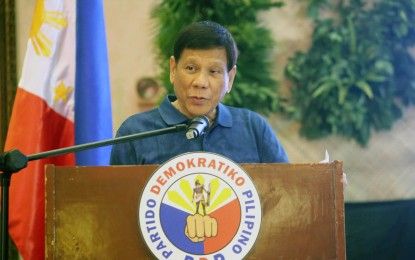With the International Criminal Court (ICC) out of the picture, can victims of Duterte’s drug war get justice under the Marcos administration?
The Department of Justice (DOJ) has warned government officials and employees against cooperating with the ICC’s investigation into the human rights violations and abuses committed during the drug war of former President Rodrigo Duterte.
“If there’s any law enforcement or government official that goes against the policies and orders of the authorities in position, then obviously there will be some sort of conflict of interest, there will be accountabilities and definitely liabilities that go with it.” This was the statement of Department of Justice (DOJ) Assistant Secretary and spokesman Mico Clavano after recent reports that Philippine police officers allegedly “talked” with the ICC.
Former Senator Antonio Trillanes IV, one of Duterte’s biggest opposition figures, had earlier said that around 50 former and incumbent police officers had talked with ICC.
According to Clavano, government officials and employees particularly law enforcement must obey the government’s policy of not recognizing the ICC investigation within the country’s jurisdiction.
However, DOJ admitted that they have “little hold” on retired officials.
No jurisdiction?
President Ferdinand Marcos Jr. reiterated last April 23 that the ICC has no jurisdiction in the Philippines and that the government will not cooperate in its investigation.
“Let me say this for the 100th time. I do not recognize the jurisdiction of ICC in the Philippines. I do not, I consider it as a threat to our sovereignty. The Philippine government will not lift a finger to help any investigation that the ICC conducts” said Marcos.
“In fact, binabantayan namin sila, making sure that hindi sila— that they do not come into contact with any agency of government,” he continued.
Marcos also directed government agencies, police personnel, and local governments not to coordinate.
“Huwag niyong sasagutin, ‘yun ang sagot natin. That we don’t recognize your jurisdiction, therefore, we will not assist in any way, shape or form, any of the investigations ICC is doing here in the Philippines.”
Both Philippine National Police (PNP) and the Department of Interior and Local Government (DILG) had expressed their support with the president’s policy.
PH investigation
Aside from questioning the ICC’s jurisdiction in the country, Marcos also said that the Philippine Justice System is working and thus can deal with the investigation themselves.
“We have a working judicial system, at meron pong mga korte na doon po tayo pwedeng duminig kung meron man pong mga pang-aabuso at iregularidad sa hanay ng PNP,” said PNP spokeperson Col. Jean Fajardo.
“Ito po ay napatunayan natin dahil may mga pulis tayo na nakasuhan, nakulong, at na convict. Ganoon po ang gagawin ng PNP, magpapasakop po tayo sa hurisdiksyon ng Pilipinas,” she continued.
For Marcos, “But as a matter of principle, it is very difficult for the Philippines to accept that an outside court will, shall I say, dictate to our policemen, ‘who they will investigate, who they will arrest and who will say, that hey, because we don’t need that advice’.”
#WeTakeAStand #OpinYon #ICC #DOJ #WarOnDrugs #PNP #DILG #PresidentDuterte

